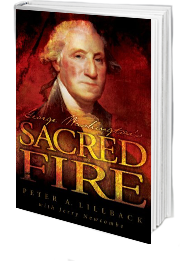The Humbling of Columbus
Like falling dominoes, another historical figure has bit the dust due to the ongoing assault upon the figures and icons of the past. Christopher Columbus has been desacralized. San Francisco, for example, has replaced Columbus Day with Indigenous Peoples Day.
The politically correct interpretation of the West has gained ascendancy and in its hegemony, it has decreed that the indigenous peoples of the “new world” be given their due respect at the expense of the great discoverer. For after all, Columbus’ motives for sailing to distant shores were hardly exemplary if we accept the sanctioned interpretation: fame, slaves, gold, and jewels. But beyond his greed, he was cruel and evil as well.
This began to be taught in schools a long while ago. For example, in 1990 a book entitled, Columbus Day portrayed Columbus as hatching the “evil” plan of employing Christianity as a means of making Indians into slaves.
Columbus liked the Indians. But when he saw that their jewelry was made of gold, he began making evil plans. He decided that the Indians should be the slaves of the Europeans who would settle in this region. The Indians would mine gold for the Europeans and do their other work. Columbus also hoped the Indians would become Christians. He felt they would gain more from Christianity than they would lose by becoming slaves. Before leaving the island, Columbus kidnapped a few Indians. He wanted them to guide him to other islands. And he wanted to show them off back in Spain. (pp. 27, 30.)
No wonder that today almost thirty years later, Columbus was not just evil, but must be excised from our culture like a cancerous tumor.
Things have changed since I was a child and learned of Columbus. Back then, he was one of the most significant discoverers in history. A brilliant navigator, he heroically challenged the savage seas and persevered through ridicule and near mutiny to fulfill his idealistic vision of discovering a westerly route to the Indies. This image of Columbus placed his name–Columbus or Columbia–permanently upon the map of the Western Hemisphere: our nation’s capitol, Washington, District of Columbia; Columbus, the capitol of Ohio; Columbia, South Carolina; the nation of Columbia in South America; Columbia University.
So let’s take the San Francisco decision to celebrate the indigenous peoples at the expense of Columbus seriously. What did Columbus impose on the indigenous peoples? What are the things that we can credit Columbus with bringing to the native peoples? Here are things that we might consider:
- He established trade with an unknown world.
- He brought them higher education.
- He provided advanced technology.0909
- He brought Spanish culture.
- He brought the Christian faith.
- He brought small pox and other European diseases.
- He took their gold.
- He engaged in conflict and war with the indigenous people.
- He subjugated the indigenous peoples and some were enslaved.
This clearly is an imperfect record. There are things that are tragic, reprehensible yet others that are vastly for the better. Which are which can certainly be debated. But on the other hand, what should we celebrate among the aboriginal peoples? Here are some possibilities:
- Knowledge of the Meso-American culture’s insights into astronomy.
- New foods such as corn.
- Mineral resources such as silver and gold.
- Inter-tribal hostility and warfare that had plagued the islands for generations.
- Human sacrifice as a core belief in their religious rituals.
- Cannibalism—the word “Carib” from which Caribbean is derived meant a cannibal in Columbus’ Day.
- War—The forty men Columbus left behind were all killed when he returned.
- Disease—When the sailors of Columbus’ voyage returned to Barcelona, they were struggling with new sexually transmitted diseases called syphilis and gonorrhea.
This too is clearly an imperfect record. There are things that are noble, tragic and reprehensible.
Such is the story of an honest telling and an honest celebration of history. Is it right to forget the extraordinary courage and success of Columbus as a discoverer because of the mixed results of his cultural impact? Is it right to celebrate the remarkable culture of the indigenous peoples by ignoring the elements of their culture that even the most anti-Columbus critics would disdain?
If we are to replace Columbus because of his “evil” shouldn’t the same measure be used for the indigenous peoples too? This seems to be logical and fair unless we are prepared to sanction again human sacrifice and cannibalism.
In my humble opinion, the only honest historical solution in our politically correct milieu is to rename the Day—if we must—to something like Columbus and Indigenous Peoples Discovery Day. After all, both sides gained and both sides lost in the encounter. Both sides are the richer and the poorer for it, but we cannot take back history no matter how hard we try. At any rate, if it hadn’t been Columbus, somebody from one side or the other would have eventually made the trans-Atlantic voyage, with likely similar outcomes. So Let’s simply keep our history and be honest about it. If we are going to have to desacralize Columbus, and maybe we should, but to do so, we shouldn’t have to reenact heart-extraction Meso-American worship or canonize cannibals—nor cover up such uncomfortable historical facts.
